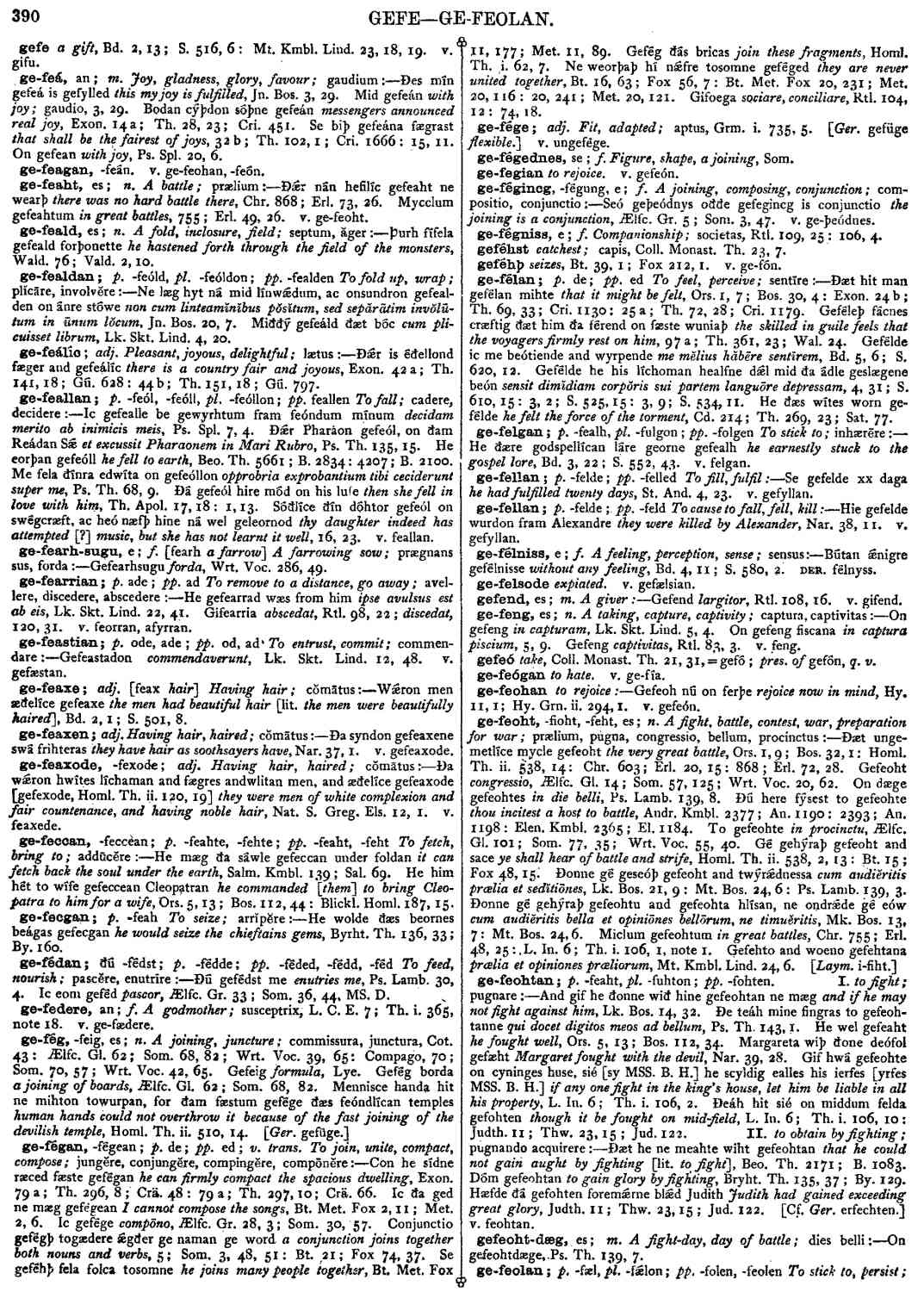ge-feohtan
- verb
-
And gif he ðonne wið hine gefeohtan ne mæg
and if he may not fight against him,
- Lk. Bos. 14, 32 .
-
Ðe teáh mine fingras to gefeohtanne
qui docet digitos meos ad bellum,
- Ps. Th. 143, 1 .
-
He wel gefeaht
he fought well,
- Ors. 5, 13; Bos. 112, 34 .
-
Margareta wiþ ðone deófol gefæht
Margaret fought with the devil,
- Nar. 39, 28 .
-
Gif hwá gefeohte on cyninges huse, sié [sy MSS. B. H.] he scyldig ealles his ierfes [yrfes MSS. B. H.]
if any one fight in the king's house, let him be liable in all his property,
- L. In. 6; Th. i. 106, 2 .
-
Ðeáh hit sié on middurn felda gefohten
though it be fought on mid-field,
- L. In. 6; Th. i. 106, 10 :
- Judth. 11; Thw. 23, 15 ;
- Jud. 122 .
-
Ðæt he ne meahte wiht gefeohtan
that he could not gain aught by fighting [lit. to fight ],
- Beo. Th. 2171 ;
- B. 1083 .
-
Dóm gefeohtan
to gain glory by fighting,
- Bryht. Th. 135, 37 ;
- By. 129 .
-
Hæfde ðá gefohten foremǽrne blǽd Judith
Judith had gained exceeding great glory,
- Judth. 11; Thw. 23, 15 ;
- Jud. 122 .
Bosworth, Joseph. “ge-feohtan.” In An Anglo-Saxon Dictionary Online, edited by Thomas Northcote Toller, Christ Sean, and Ondřej Tichy. Prague: Faculty of Arts, Charles University, 2014. https://bosworthtoller.com/14325.
Checked: 1